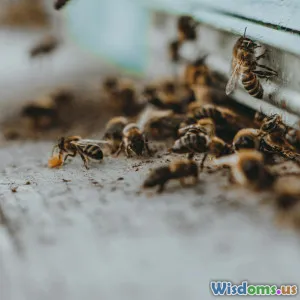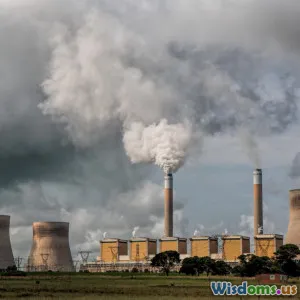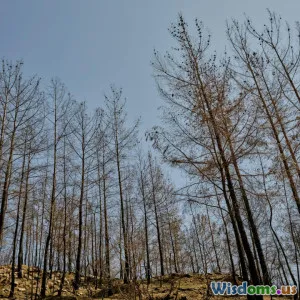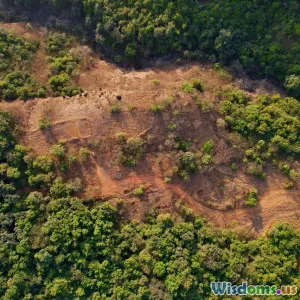
The Role of Pollinators in Ecosystems
5 min read Explore how pollinators support ecosystems and food production, their challenges, and ways we can help protect them. (0 Reviews)
The Role of Pollinators in Ecosystems
Pollinators are often unsung heroes in our ecosystems, playing a crucial role in supporting biodiversity and food production. From bees and butterflies to birds and bats, these organisms contribute to the reproductive success of many flowering plants, which in turn sustain the food web and contribute to the health of various ecosystems.
Importance of Pollinators
Biodiversity Support
Pollinators help ensure the reproduction of a vast array of plant species. It is estimated that about 75% of the world's flowering plants depend on animal pollinators for successful reproduction. This not only includes food crops but also wild plants that provide habitat and food for various species, contributing to overall biodiversity.
Food Production
In agricultural contexts, pollinators are vital for the production of many fruits, vegetables, nuts, and seeds. Crops such as apples, almonds, and blueberries rely heavily on pollination. The Food and Agriculture Organization (FAO) reports that pollinators contribute to the production of 35% of the world’s food crops, showcasing their direct link to human food security.
Challenges Facing Pollinators
Despite their importance, pollinators are facing numerous challenges:
Habitat Loss
Urbanization, agriculture, and deforestation have significantly reduced the natural habitats of many pollinators. As these environments shrink, so do the resources necessary for their survival.
Pesticides and Chemicals
The use of pesticides in farming practices has been linked to the decline of pollinator populations. Chemicals designed to eliminate pests can also harm beneficial insect populations, leading to drastic decreases in their numbers.
Climate Change
Changing climate conditions affect the availability of flowers and nesting sites for pollinators. As seasons shift, the timing of flowering plants often does not align with the life cycles of pollinators, creating mismatches that can jeopardize both plant and pollinator populations.
How to Support Pollinators
There are several practical steps individuals and communities can take to support pollinators and their habitats:
Plant Native Flora
Incorporating native plants into gardens and landscapes can provide essential food sources for pollinators. Native plants are adapted to local conditions and can thrive without the need for excessive water or pesticides.
Create Pollinator Habitats
Designing gardens or community spaces that include diverse flowering plants, nesting sites, and water sources can create inviting habitats for various pollinators. Even small changes can make a significant difference.
Reduce Pesticide Use
Opting for organic gardening techniques or reducing chemical pesticide use can protect pollinator populations. Integrated pest management strategies can help minimize harm to beneficial insects.
Educate and Advocate
Raising awareness about the importance of pollinators and advocating for policies that protect their habitats can lead to broader community actions and initiatives that benefit these crucial organisms.
Conclusion
Pollinators are integral to the health of ecosystems, supporting biodiversity and food production. As human activities continue to threaten their populations, it is imperative that we take action to protect them. By planting native plants, creating suitable habitats, and advocating against harmful agricultural practices, we can ensure that pollinators thrive for generations to come. Protecting these vital species is not just an environmental issue; it is essential for sustaining our food systems and overall ecosystem health.
Rate the Post
User Reviews
Popular Posts





















